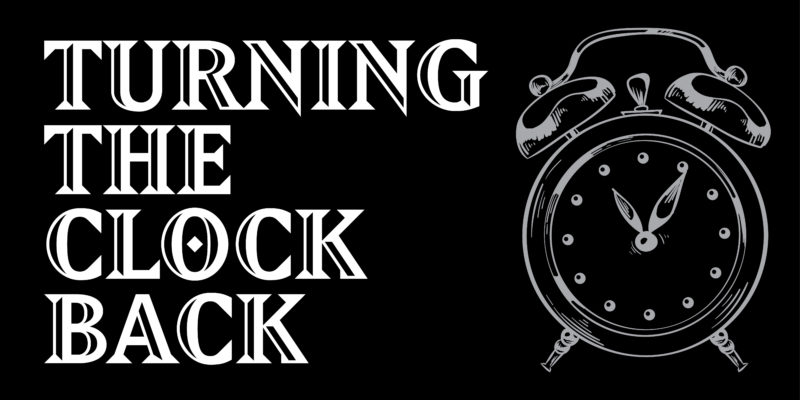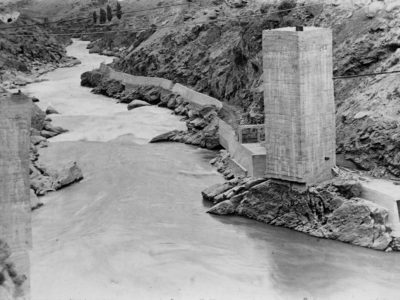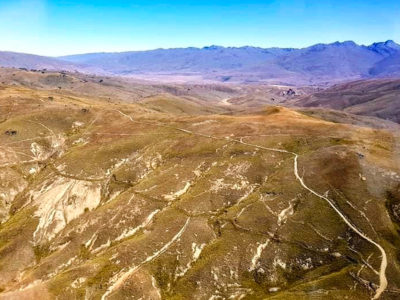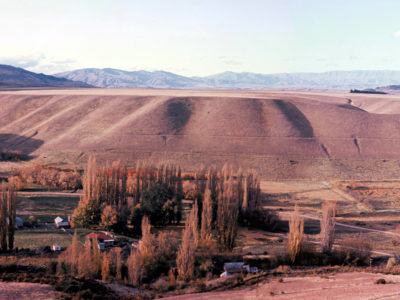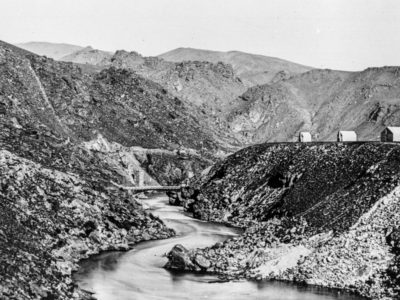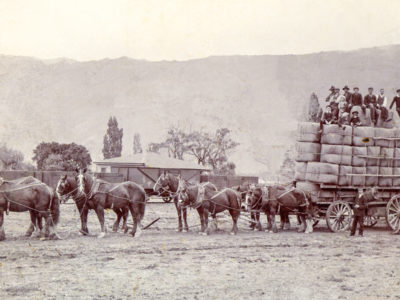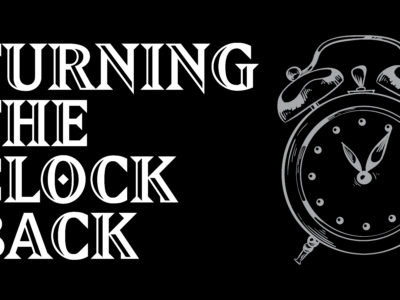Today when traveling from Cromwell to Dunedin we cross the Clutha River and numerous streams that flow into them many times. Some by modern impressive bridges, others are a pipe underneath the road. In 2022 this trip takes about three hours.
Turn the clock back to the 1860’s this same trip took many days. Tracks/roads were very basic and followed the contour of the land. People either walked, rode a horse, or travelled in a dray/ coach drawn by a horse or team of horses. Goods were transported by teams of bullocks pulling a large dray. The tracks/roads sometimes followed rivers, sometimes over mountain passes to get to the next valley. Crossing a river was often a major issue. When a river was in a wide valley and the river widened it often become relatively shallow. This was where a safe crossing place could often be found. In other areas the rivers were in deep gorges with no suitable crossing points. However, in the Kawarau gorge nature provided a “Natural” bridge where it could be crossed with ease on foot. This is a few 100 metres upriver from the Meg Power Station. It is difficult to get to and numerous floods have changed its shape is now no longer safe to use.
As the population increased boats were used at various places to ferry passengers across the major rivers for a fee. These were later enlarged and become known as punts. These were able to take people, horses, horses and carriages. The current of the river was used to propel them across. These operated at various places along the rivers. In the Cromwell area there was a crossing on the Clutha River just below the junction with the Kawarau River to get to Cornish Point, and one on the Kawarau River just above the junction to get to from Cornish Point to Cromwell. There were also punts at Bannockburn and Lowburn.
Later the punts were replaced by bridges. At first, they were built for foot and horse traffic and later bigger ones were built to be able to take horse teams. Initially the were built by individuals and like the punts a toll was charged to cross. Later the bridges were taken over by the county and later the government and the tolls abolished.


